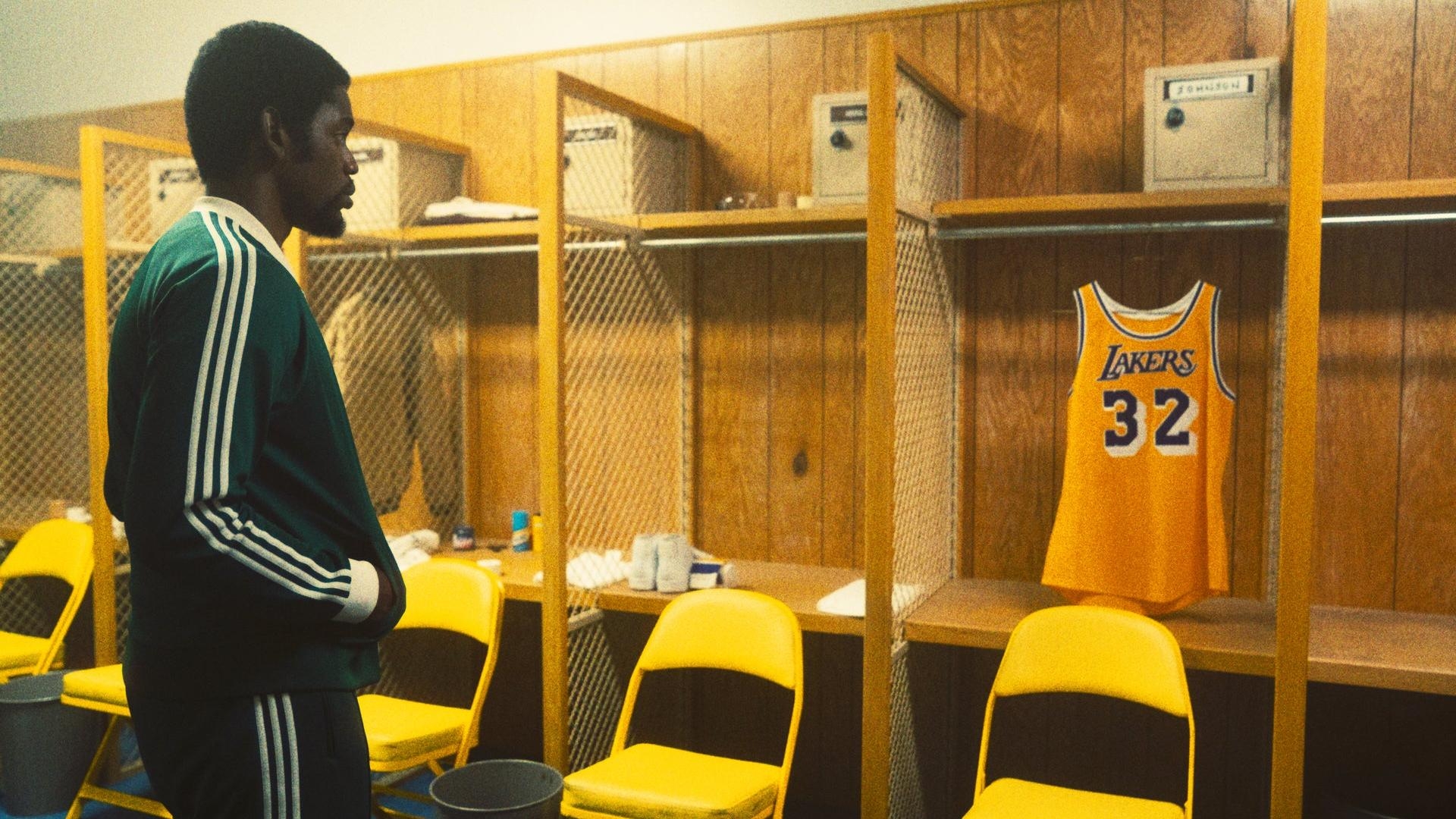One of the foundational myths of modern professional sports begins with the notion that the National Basketball Association had lost its way in the 1970s, becoming a niche league for a variety of reasons, including a lack of likable players—or, to put it in the terms the era’s television executives were using behind closed doors, a lack of white players. And then the 1979 NCAA basketball championship broke viewership records, because of the marquee matchup of the intense Indiana farm boy Larry Bird and the flashy Michigan kid Earvin “Magic” Johnson, both of whom were about to be NBA rookies. Bird and Magic would go on to dominate pro basketball in the ’80s, setting the stage for future stars and helping to turn the sport into an international phenomenon.
All of this is true… ish. The reality was more complicated. The 1970s NBA was much richer in charismatic characters and uplifting drama than the conventional wisdom would suggest; and the ’80s had its share of ugly scandals. The two eras collided in the the thrilling 1980s Los Angeles Lakers teams, who had some exhilarating moments on the court and some messy moments in the locker room—all covered in vivid detail both in sports reporter Jeff Pearlman’s dishy book Showtime: Magic, Kareem, Riley, And The Los Angeles Lakers Dynasty Of The 1980s, and now in its energetic and entertaining TV adaptation, Winning Time: The Rise Of The Lakers Dynasty.
John C. Reilly stars as Jerry Buss, the brash L.A. playboy and real estate magnate who bought the Lakers in 1979 and changed the team’s image and reputation, turning their arena The Forum into one of the city’s hotspots. Reilly plays the character as a mix between a riverboat gambler, a conman, a lascivious creep, and a lost soul: a man who misrepresents his finances to buy a team drowning in red ink, and then keeps his creditors at bay for as long as he can, hoping that the Lakers can make a long run in the playoffs and generate enough revenue to keep him from bankruptcy.
Pearlman’s book covers a whole decade of the Lakers saga; and Winning Time opens with a scene set in 1991, when Magic Johnson finds out he’s HIV positive. But the first season is mostly set in 1979 and ’80, covering the steps Buss and his employees took to turn a moribund franchise into one of the NBA’s standard-bearers. The season weaves together three main threads. The first involves Buss, the unapologetic upstart, looking for the respect of NBA blue-bloods like the Boston Celtics executive Red Auerbach (Michael Chiklis), while also leaning on his hardworking daughter Jeanie (Hadley Robinson) and The Forum’s shrewd business manager Claire Rothman (Gaby Hoffmann) to find every angle they can to squeeze money out of the arena and the team. The show is very good at turning Buss’ business deals and macho bluster into TV-ready drama, where every argument and long shot maneuver is high stakes.
The second thread involves the key component of the Lakers revival: Magic Johnson (Quincy Isaiah), a dynamic player with a big, bright personality, who seems primed to be the NBA’s next superstar. First though, Johnson has to overcome the nagging disapproval of his strict Christian parents, a lack of experience when it comes to life-changing financial decisions, and a voracious sexual appetite. Winning Time is loaded with well-known actors, but even more impressive are newcomers like Isaiah and Solomon Hughes (who plays Kareem Abdul-Jabbar), who aren’t just doing impersonations of famous hoops stars, but digging deep into what drove them.
The series’ last major thread has to do with the jostling between the past, present, and future Lakers coaches. Jason Clarke plays Jerry West, an intensely driven ex-player who quits his head coaching gig to save his sanity, but sticks around as a consultant. Tracy Letts plays Jack McKinney, the new head coach, a harsh taskmaster with an innovative scheme to turn the Lakers into a non-stop fast-break machine. Jason Segel is McKinney’s loyal assistant Paul Westhead, the self-doubting intellectual. And lurking in the shadows is Pat Riley (Adrien Brody), another ex-player with a keen mind, a deep understanding of psychology, and a willingness to do whatever it takes to succeed. These four actors are all heavy-hitters, and the way they play their petty squabbles is a kick to watch.
Not everything that the Borenstein/Hecht/McKay team tries here pays off. It’s great they have the clout to fill even the smallest roles with top-shelf actors; but it’s hard not to be disappointed when the likes of Lola Kirke, Julianne Nicholson, and Gillian Jacobs show up (playing the wives of West, McKinney, and Riley, respectively) and don’t do much besides react to the main characters. The show also goes overboard on the “retro” visual style, using various techniques to make the images look like faded and battered old film footage, or fuzzy home video. The gimmick can be distracting at times. It rarely adds much.
That said, Winning Time is clearly the work of people who know and love basketball history. They love shooting in the sweaty practice gyms and the labyrinthine corridors beneath The Forum. They love dropping references to the cult basketball movie The Fish That Saved Pittsburgh and the corny old “NBA On CBS” opening animation. They love stopping an episode for a few seconds to point out that the woman the Buss family hires to be the head choreographer for the Laker Girls is Paula Abdul, or to note that when the Lakers play the Clippers, one of the people in the crowd is a newborn Kobe Bryant, son of Clippers forward Joe “Jellybean” Bryant.
The writing team has their pet themes. They explore how nearly every one of their characters is driven by a broken relationships with their parents. Winning Time frequently introduces flashbacks, to show how West’s tough childhood in West Virginia, or how the activist Abdul-Jabbar feuded with his New York transit cop father. The show also digs into the subtle (and not-so-subtle) racism underlying the league’s promotion of the Magic/Bird rivalry, and the coded words NBA execs used to describe white players and black players.
On the whole though, Winning Time isn’t heavy or preachy. It mostly shifts between affectionate, wonky, and playfully ironic. This is a portrait of an NBA on the precipice of a major transformation, thanks to new stars and new corporate partners (including Nike, whose failed shoe pitch to Magic is a plot line in one episode). It’s a show about how creating something great and lasting is hard work, and how not everyone involved emerges unbruised. Winning Time is about one of sport’s golden ages, yes; but it’s also about the nebulousness of that very concept. By including a lot of different perspectives, the Winning Time team makes clear that in hindsight, everyone has a different idea about what a golden age was really like—and about when and why it ended.


 Keep scrolling for more great stories.
Keep scrolling for more great stories.
